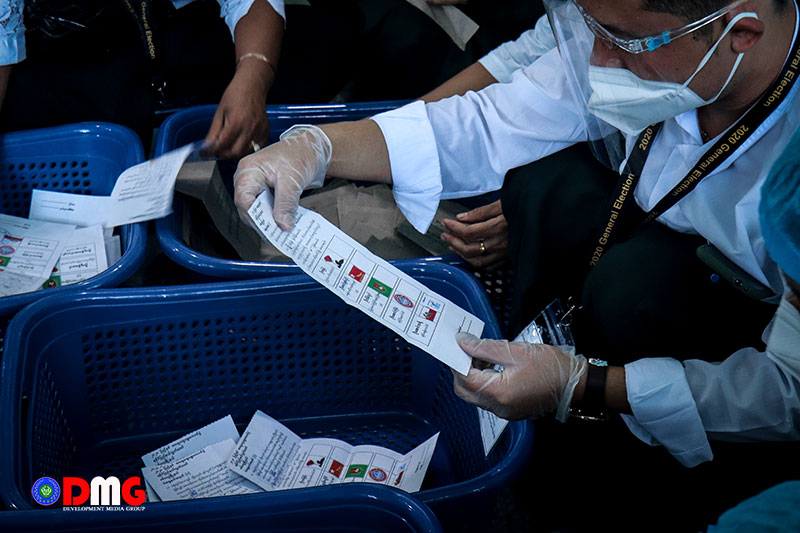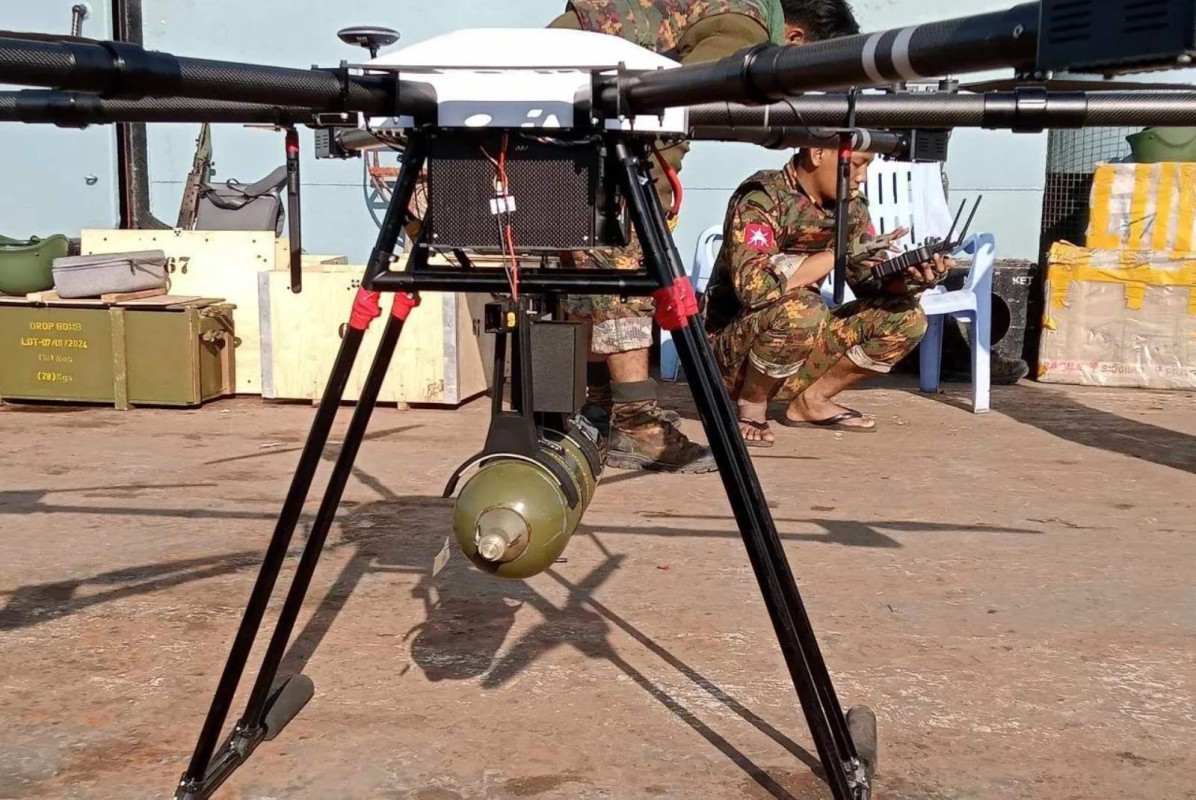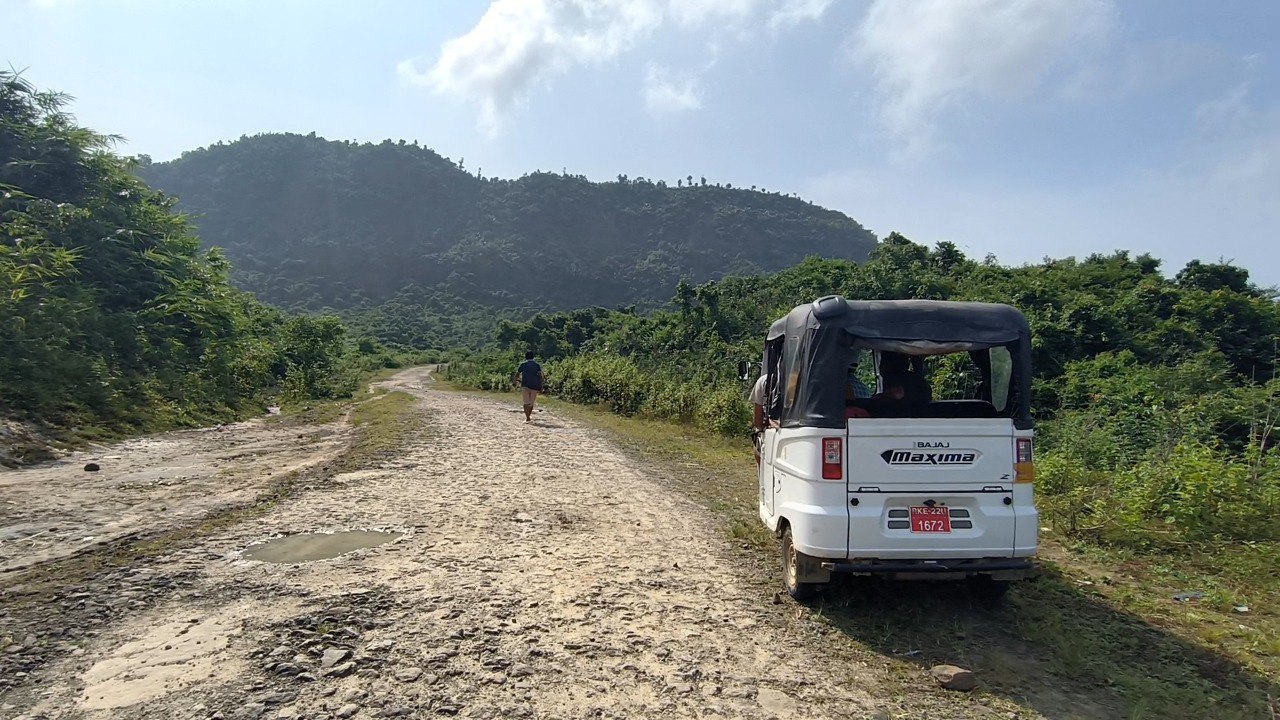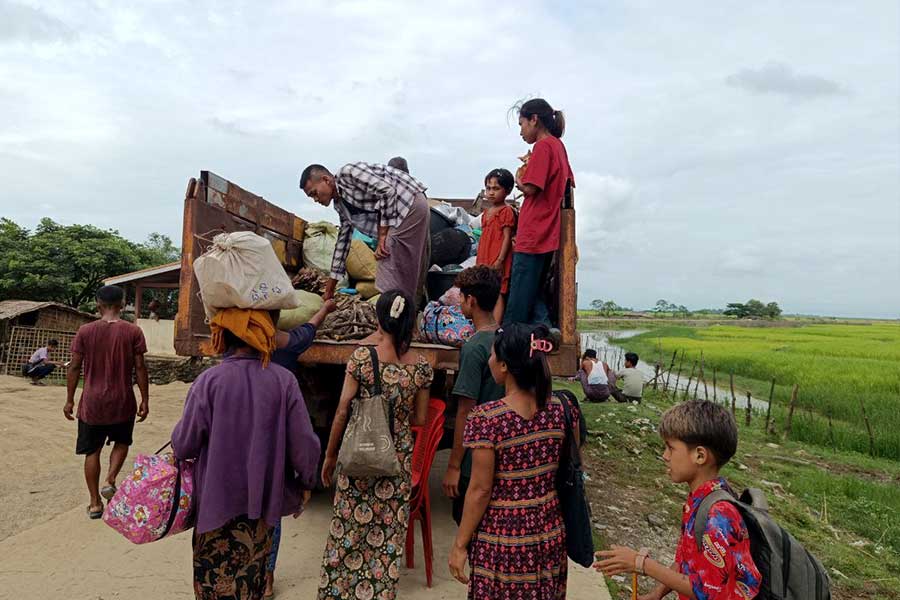- Family of minors raped by abbot in Kyaukphyu demand justice
- Salt farming declines in Arakan State as costs rise and markets falter
- Thousands flee junta raids in Mindon as villages are torched
- Children in Arakan State urgently need psychosocial support and safe spaces
- Regime uses paramotors and gyrocopters to target civilians, Fortify Rights says
Over 42,000 ballots tossed out in Arakan State elections
More than 42,000 ballots were invalidated or “missing” in the November 8 general election in Arakan State, according to the state election subcommission.
22 Nov 2020

Min Tun | DMG
22 November 2020, Sittwe
More than 42,000 ballots were invalidated or “missing” in the November 8 general election in Arakan State, according to the state election subcommission.
There were 41,191 invalid ballots and 1,569 missing ballots, for a total of 42,760 votes that were not counted in Arakan State’s elections.
Broken down by chamber, there were 15,625 invalid ballots and 580 missing ballots in the Pyithu Hluttaw (Lower House) races; 13,227 invalid ballots and 721 missing ballots in the Amyotha Hluttaw (Upper House) contests; and for the Arakan State legislature, 12,339 invalid ballots and 268 missing ballots.
“The ballot paper was rejected if the voter cast a vote incorrectly on the ballot paper. In addition, if a voter [marked two boxes] on the ballot paper, the ballot would be rejected,” said U Thurein Htut, secretary of the Arakan State election subcommission.
He explained that “missing” ballots resulted when the number of ballots cast at a given polling station on Election Day was fewer than the number of voters recorded at the polling place that day.
The election official went on to say that the main cause of invalid and missing ballots in the election was a lack of voter education amid the coronavirus pandemic.
Several political parties had called for the 2020 general election to be postponed as COVID-19 cases in Myanmar rose dramatically in the weeks leading up to the vote, but the Union Election Commission (UEC) opted to press ahead with the poll.
According to the Arakan State election subcommission, this year’s election saw a turnout of nearly 69% of the more than 440,000 eligible voters in the state, where a majority of townships and 1.2 million eligible voters were not able to cast ballots as the UEC cancelled elections in their constituencies, citing conflict in the region.






.png)








.jpg)

